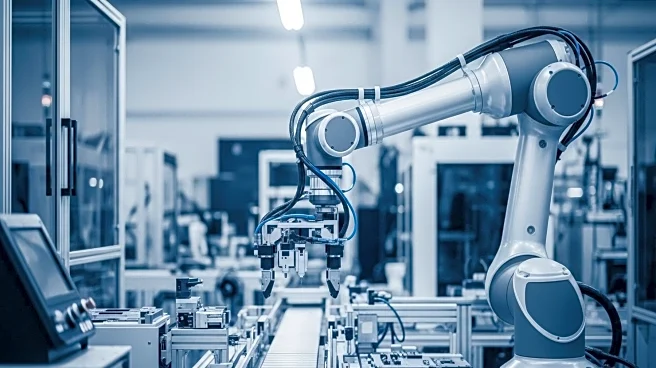What is the story about?
What's Happening?
Jaguar Land Rover (JLR) is set to resume manufacturing operations at its Wolverhampton engine factory following a cyber attack that forced the company to halt production in early September. The attack impacted JLR's facilities in Halewood, Solihull, and Wolverhampton, leading to a significant disruption in its manufacturing processes. The company has announced a controlled, phased restart of operations, aiming to mitigate the financial impact of the shutdown, which experts estimate could cost the company around £120 million. The UK government has intervened by underwriting a £1.5 billion loan guarantee to support JLR's suppliers, who have been left in uncertainty due to the production halt.
Why It's Important?
The resumption of manufacturing at JLR is crucial for the UK automotive sector, which employs approximately 120,000 people, many of whom are part of JLR's extensive supply chain. The cyber attack not only affected JLR's production but also threatened the stability of small and medium-sized businesses that supply parts to the car manufacturer. The government's financial support aims to prevent potential collapses among these suppliers, ensuring continuity in the sector. This incident highlights the vulnerability of major industries to cyber threats and the importance of robust cybersecurity measures to protect critical infrastructure.
What's Next?
As JLR resumes operations, the focus will be on stabilizing production and ensuring the security of its systems to prevent future cyber attacks. The company will likely work closely with cybersecurity experts to strengthen its defenses. Additionally, the government and JLR will continue to monitor the situation, providing necessary support to suppliers affected by the disruption. The automotive industry may see increased investment in cybersecurity as companies seek to protect themselves from similar threats.
Beyond the Headlines
The cyber attack on JLR underscores the growing threat of cybercrime to major industries, prompting discussions on the need for enhanced cybersecurity protocols. This incident may lead to broader regulatory changes in the automotive sector, emphasizing the importance of digital security. It also raises ethical questions about the responsibility of companies to safeguard their operations and the potential consequences of failing to do so.















